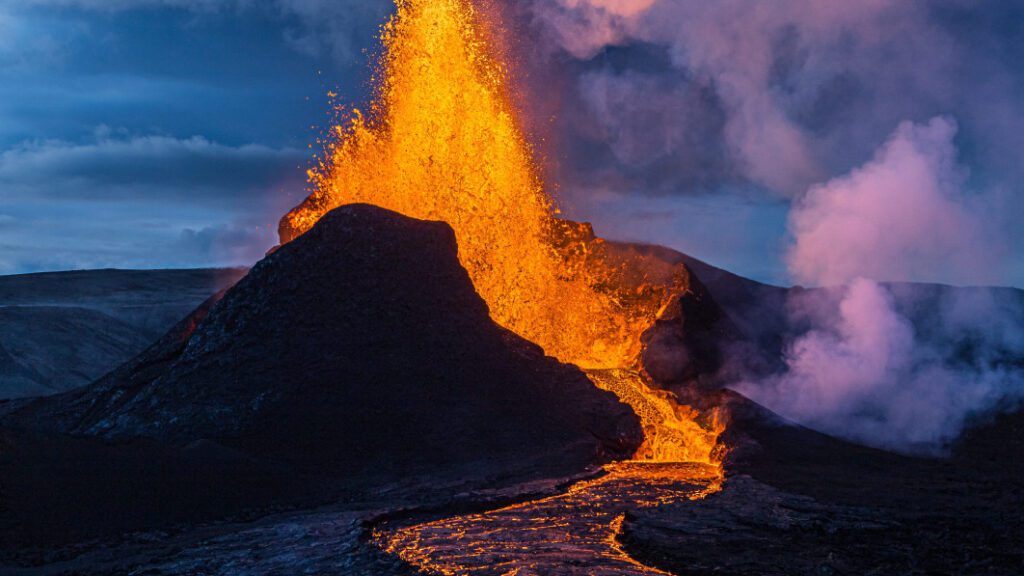World's largest lithium deposit may have been discovered inside a U.S. volcano

Hafsteinn Karlsson / Getty Images
The world’s largest deposit of lithium may have been found inside an ancient U.S. supervolcano.
That’s according to a study conducted by Lithium Americas, which hypothesizes that the McDermitt Caldera contains 20 to 40 million metric tons of lithium.
Lithium Americas stock surged more than 7% on Monday after the study was published.
The world’s largest deposit of lithium may have just been discovered inside an ancient U.S. supervolcano that was formed about 16 million years ago, according to a recent study.
The potential discovery centers around the McDermitt Caldera on the border of Nevada and Oregon. The new study suggests that there could be 20 million to 40 million metric tons of lithium in a bed of clay that is found throughout the inactive volcano.
Lithium Americas saw its stock price surge 7% on Monday after the study was published, and the stock jumped an additional 4% on Tuesday. The company operates the Thacker Pass lithium mine within the southern end of the McDermitt Caldera.
The study was funded by Lithium Americas, and even if the McDermitt Caldera does contain the world’s largest deposit of lithium, it’s still unclear if it would be economically feasible to extract the lithium, which is the main ingredient used in batteries for everything from smartphones to electric vehicles.
Lithium Americas expects to being mining lithium out of its Thacker Pass mine in 2026, and if the mine proves successful and the deposit is as big as the company believes it could be, it could have massive implications for one of the hottest commodities in the world, as it would help the US become independent in its ongoing hunt for lithium.
Prior to this potential discovery, the largest lithium deposit was thought to be underneath a salt flat in Bolivia.



